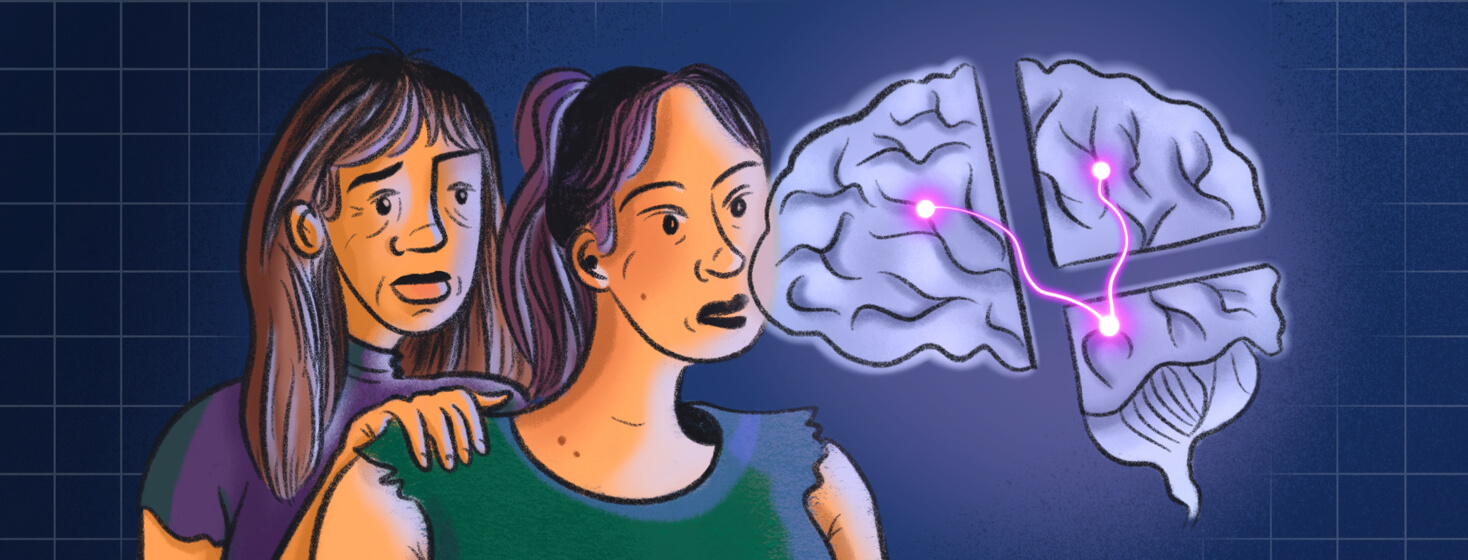The Connection Between Epilepsy and Down Syndrome
Epilepsy is a condition that affects the central nervous system. People with epilepsy have abnormal brain activity that causes seizures. Not everyone who has had a seizure has epilepsy. Most diagnoses require at least 2 seizures with unknown causes at least 24 hours apart.1
Epilepsy has many potential causes. One potential risk factor is Down syndrome. We do not fully know the reasons for this link yet. But researchers are working to understand it.1,2
What is Down syndrome?
People with Down syndrome have a full or partial extra chromosome. Chromosomes are responsible for carrying genes, or DNA, in the body. Chromosomes have an important role as a baby grows during pregnancy and after. They carry the instructions that tell our bodies how to grow and develop.3
Typically, babies have 23 pairs of chromosomes, or 46 total. People with Down syndrome have a full or partial extra copy of chromosome 21. These extra instructions can impact the way their bodies develop and how their cells function. This can cause a wide range of symptoms. So Down syndrome can look different for every person who has it.3
What is the link between Down syndrome and epilepsy?
Epilepsy is more common in people with Down syndrome than in the rest of the population. About 10 percent of people with Down snydrome also have epilepsy. Of people with both Down syndrome and epilepsy, about 40 percent developed epilepsy as young children. Another 40 percent developed epilepsy later in life, after age 40.4,5
We do not fully understand the reasons for this link. But researchers have identified some possible explanations.
Dementia and epilepsy
Down syndrome increases the risk of several conditions. One of the most common is early-onset dementia caused by Alzheimer's disease. This impacts 70 to 90 percent of people with Down syndrome. Dementia is a condition that impacts the brain and memory. There seems to be a link between people with Down syndrome who have dementia and epilepsy later in life. About half of people with Down syndrome and dementia also develop epilepsy.2,4
For people with Down syndrome, epilepsy and dementia are so common together that there is a special name for it: late-onset myoclonic epilepsy in Down syndrome (LOMEDS). Having epilepsy and dementia together often increases the severity of the dementia and lowers quality of life. Research on this link has tried to identify if certain sections of the extra Down syndrome chromosome might increase the risk of seizures.2,4
Children with Down syndrome and epilepsy
It is not clear if epilepsy in young children with Down syndrome has any link to dementia. Because of this lack of clarity, scientists are looking into other explanations. Many of these explanations focus on the differences people with Down syndrome have in their brain structures. Additionally, children with Down syndrome may have higher levels of a protein in their brains that is linked to seizures.5
Treating epilepsy in people with Down syndrome
People with Down syndrome who have epilepsy typically get the same treatments as people without Down syndrome. But people with Down syndrome may have different side effects from some drugs. A type of drug called corticosteroids seems especially successful at treating epilepsy in people with Down syndrome. Anti-epileptic drugs may be less successful but can still treat seizures.6
Most people, with or without Down syndrome, only need one medicine to control seizures. But it can take time to find the right combination of drugs to treat epilepsy and minimize side effects.2,6

Join the conversation